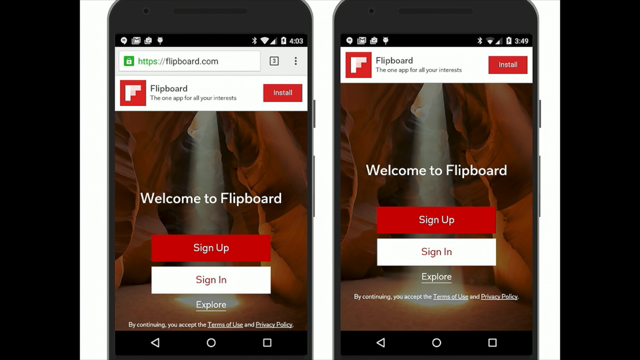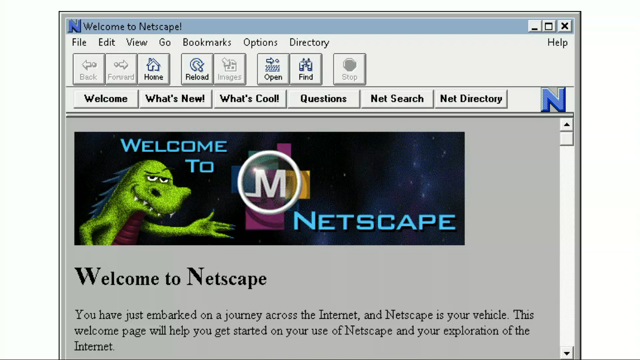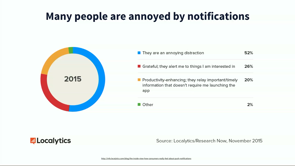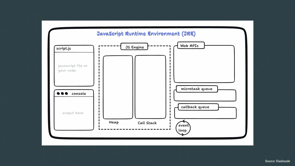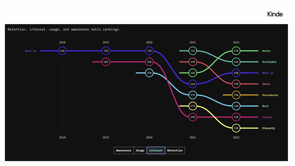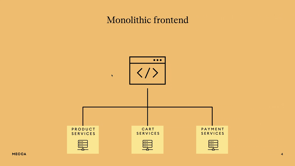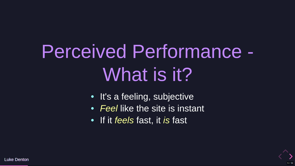The future direction of the Web
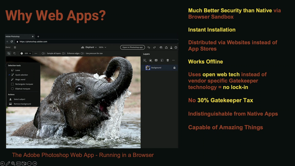
Introduction: The Fight for the Future of the Web
Alex opens the talk with a focus on the future of web and apps, emphasizing the role of Open Web Advocacy in ensuring a positive direction for this future.
The Role of Open Web Advocacy
Alex explains the purpose of Open Web Advocacy, a coalition of independent software developers advocating for the web's unique properties and its ability to unlock competition within mobile app ecosystems.
Barriers in the Path of Mobile Browsers
The presentation highlights the significant barriers faced by mobile browsers in fulfilling their full potential and the historical context of web presence on PCs and Macs.
Transition of Computing to Browsers
Alex discusses the evolution of browsers becoming the primary mechanism for tasks on desktops, emphasizing their role in reducing costs and improving security for users.
Benefits of Browser Interoperability
The talk covers the benefits accrued to society through browser interoperability, highlighting how browsers have lowered prices for digital goods and made applications more accessible.
Challenges in the Mobile Landscape
Alex examines the challenges in the mobile landscape, noting that browsers on smartphones have not been able to transmit important capabilities at lower costs as they have on desktops.
Issues with Current Mobile App Model
The presentation delves into the current model of mobile apps, where app stores owned by gatekeepers control app distribution and charge high fees, limiting the web's potential on mobile.
Steve Jobs' Vision for Mobile Web Apps
Alex revisits Steve Jobs' initial announcement of the iPhone and the vision for mobile web apps, contrasting it with Apple's eventual decision to control app installation.
Apple's Approach to macOS and iOS Stores
The talk compares Apple's approach to the macOS store and the iOS store, highlighting the differences in app distribution and revenue sharing.
The Fight for Web Apps
Alex emphasizes the potential of web apps to revolutionize the mobile app industry and their advantages in terms of access, security, and absence of app store fees.
Future of Web Apps and Investments
The presentation discusses the future potential of web apps, citing investments by major companies like Adobe and Microsoft in web-based versions of their popular software.
Challenges for Web Apps on Mobile
Alex explores why web apps have struggled to compete with native apps on mobile, focusing on Apple's policies restricting competitive third-party browsers on iOS.
Regulatory and Legal Efforts for Open Web
The talk shifts to the efforts by Open Web Advocacy in briefing regulators and legislators to counterbalance the mobile app duopoly and enable web apps to compete fairly.
Improvements to Safari and Web Apps
Alex acknowledges the improvements made to Safari and web app functionalities, attributing them to advocacy efforts and emphasizing the need for continued pressure on browser vendors.
Challenges in Installing Web Apps on iOS
The presentation highlights the difficulties users face in installing web apps on iOS due to Apple's restrictions, contrasting this with the easier process on Android.
Call to Action: Supporting Open Web Advocacy
Alex encourages audience participation in supporting open web advocacy, urging them to contact regulators, get involved in web standards, and demand equality for web apps.
Conclusion: The Potential of Web Apps
The talk concludes with a vision for the future of web apps, stressing that the barriers to their success are not technological or economic, but legal and competitive.
Good afternoon, everyone.
And, thanks, John, for the introduction.
And I'd like to start with a big thank you for inviting us to Web Directions, and for inviting us to the conference.
Really has been an amazing lineup of talks.
Now I'm here to talk about the fight for the future of the web and the path forward for the future of apps and how that path is not guaranteed.
And it will rely on all of us to make sure it happens, this is why we formed Open Web Advocacy to organize, campaign, and ensure that this future isn't stolen from us.
So Open Web Advocacy is a very loose coalition of independent software developers, like everyone in this room, who've just banded together to make the case that the web is special, that it's unique properties can be beneficial to all businesses and consumers by unlocking a competition from within today's mobile app ecosystems.
This isn't a new role for the web.
But significant barriers have been placed in the path of mobile browsers from fulfilling their full potential.
consider today's desktop operating systems.
20 years ago, the web was present on PCs and Macs, but the bulk of our computing took place in native Windows and Mac apps.
It wasn't inevitable that the web would then become the primary mechanism through which reading, writing, and creation would take place on desktops.
But decades of browser competition unlocked capabilities that incrementally allowed larger and larger fraction of the jobs to be done on an average PC to move to the browser.
Today, 60 percent of desktop activity is in the browser.
Browsers are the most used apps on every desktop OS, because they satisfy a huge fraction of user needs.
And this transition has unlocked incredible benefits for consumers, citizens, and businesses alike.
For developers, the cost of reaching users has substantially declined thanks to the web.
Users benefit from improved security, the ability to modify content with extensions, and incredibly low friction when trying out new services and sites.
All of this competition is underpinned by interoperability thanks to standards.
Unlike other ecosystems, web apps run on many browsers and they allow users to switch to safer, more private, or more helpful browsers without the expense of buying new hardware or going through the hassle of having to switch operating systems.
These benefits have accrued to society because the browsers were able to access all of the capabilities of the operating systems they ran on.
They were able to lower prices for digital goods and make entire classes of applications easier, faster, and safer to access because the most important capabilities of the OS and underlying hardware could be transferred through standards and through browsers to all of us at extremely low marginal cost.
And it's through this lens that OWA looks at the mobile landscape and why we consider it to be fundamentally broken.
More than 15 years into the era of smartphones, browsers and the web have not been able to transmit important capabilities to developers at the lower prices enabled by standards and competition.
The current model for apps that has evolved is one where the majority of apps are downloaded from an app store, owned by a gatekeeper who controls the operating system.
The gatekeeper then collects up to a 30 percent cut of all third party software and digital goods sold to the consumer.
Not by merit, but by simply utilizing their ability to block or hinder the installation of apps from other sources.
The web has the potential to be so much better if only it could compete on mobile.
So, to set the stage, I'd like to take you back to 2008 when Steve Jobs first announced the iPhone and announced apps and how they would work.
[Steve Jobs] Now, what about developers?
What about developers?
We have been trying to come up with a solution to expand the capabilities of iPhone by letting developers write great apps for it and yet keep the iPhone reliable and secure.
And we've come up with a very sweet solution.
And let me tell you about it.
we've got an innovative new way to create applications for mobile devices.
Really innovative.
And it's all based on the fact that iPhone has the full Safari inside.
The full Safari engine is inside of iPhone.
And it gives us tremendous capability, more than it's ever been in a mobile device to this date.
And you can write amazing Web 2.
0 and Ajax apps that look exactly and behave exactly like apps on the iPhone.
And these apps can integrate perfectly with iPhone services.
They can make a call, they can send an email, they can look up a location on Google Maps.
After you write them, you have instant distribution.
You don't have to worry about distribution.
Just put them on your internet server, and they're really easy to update.
Just change the code on your own server, rather than having to go through this really complex update process.
And they're secure, with the same kind of security you'd use for transactions with Amazon or a bank.
And they run securely on the iPhone, so they don't compromise its reliability or security.
And guess what?
There's no SDK that you need.
You've got everything you need if you know how to write apps using the most modern web standards to write amazing apps for the iPhone today.
You can go live on June 29th.
2008.
[Alex Moore] That is the video that got me into developing mobile web apps.
And everything he says there, it's true.
It's still true today.
Nothing has changed.
Unfortunately for everybody, Apple ultimately decided on a different model.
One where they kept exclusive control of app installation and then utilized that control to demand a 30 percent cut of all third party software on devices they had already sold to consumers at incredibly high profit margins, something they were never able to achieve on macOS.
And straight from discovery in Apple's court case with Epic, we get to hear it from Apple's upper management discussing the macOS store.
Neither is on the store.
Never is on the store because they don't have to be there.
It can be on Mac and distribute to users without sharing that revenue with us.
And that really gives you an insight into, how Apple management thinks.
But why are we fighting for web apps?
As everyone knows, making high quality software.
It's incredibly difficult.
And if the platforms in our case, the browsers don't provide the tools that we need, it can be impossible.
Web apps have the potential to be, to have the potential to completely revolutionize the mobile app industry and be a game changing competitor to native apps.
Why?
First.
Instant, frictionless access measured in milliseconds, not minutes.
With web apps, many of us agonize over how to make that first time to page load or contentful paint or interactive as fast as possible on slow devices and poor internet connections.
Typically worrying about every hundred milliseconds.
In comparison, the first page load of a native app is typically measured in minutes, as they have to download 50 to 200 megabytes of code to even start.
Two, security.
Web apps are significantly more secure than native apps.
Why?
Because they use the browsers, "trust nothing by default" security model, which has been battle tested by browsers for the last 30 years.
When people ask, why do they have better security?
I just tell them it's the same security that stops, hackers getting access to your online banking.
Three, no app store fees.
They don't need app stores to be distributed.
Users just visit a website, tap install.
Gatekeepers can't charge a 30 percent tax simply because they've blocked all the alternative installation methods.
Can you imagine if Microsoft attempted to get a 30 percent cut of all software on Windows?
It would just be absurd.
But this is exactly the situation that we have allowed to flourish on mobile operating systems.
These gatekeepers extract these fees not through merit, but by their ability to block or hinder consumers from installing, software from third party companies.
Web apps have the potential to sidestep all this and allow consumers to quickly install and use web apps in the safety of their browsers, in their browser's hardened sandbox.
The idea that I can just send somebody a link to a complex app and that they could be instantly and safely using it without having to pay fees to the operating system is incredibly compelling.
If we restore competition, 90 percent of the apps on your phone could be written as a web apps and they would be indistinguishable, significantly cheaper, and often better than native apps.
Native apps will always have a lead in cutting edge graphics and gaming technology, but here's the thing.
If companies see the web platform as viable, they'll invest in it, and this gap will get narrower and narrower.
As you heard yesterday, and as a great example, Adobe has recently ported Photoshop to the web, and that's real Photoshop using their 30 year old code base.
Big companies such as Adobe and Microsoft are investing heavily in web apps.
Word, PowerPoint, Photoshop, Illustrator, VS Code are web apps because they allow these businesses to produce higher quality, maintainable applications with near zero friction install.
And the reason we bring up these examples as web apps is they dispel most of the myths about web apps in that they can perform very complex tasks, they work offline with no internet connection, and they can do all the things that native apps can do, except you only have to write them once.
As you heard from the keynote yesterday, the web now accounts for over 60 percent of desktop usage.
So why doesn't the open model of the web work on mobile?
There's a number of reasons why web apps have never been able to effectively compete with native apps, but the primary one is that Apple has effectively banned all competitive third party browsers from iOS.
They've done this from rule 2.5.6 of the App Store guidelines, which states apps that browse the web must use the appropriate WebKit framework and WebKit JavaScript.
And this is genius because this went unnoticed by practically all governments for the last 12 years.
This very innocuous rule, in fact, forces the entire content region of the browser and the majority of functionality important to web apps to be exclusively controlled by Apple.
This essentially makes all browsers reskinned versions of Safari.
And what Apple's essentially saying with this clause is, throw away the browser that you've already spent 100,000 plus hours working on.
And then go and build a thin user interface shell around Safari, which we have total control over and that you can't modify.
That in turn sets a functionality, sets a ceiling on functionality of all web apps, not just on iOS, but on Android.
Because developers aren't going to implement functionality that half of their customers cannot use.
This has deprived web developers of the fundamental tools and stability that they need to compete with native apps.
This is important because it means there's essentially no browser competition on iOS.
If Apple decides they're not going to support a web API in Safari, it means iOS will never have that API.
And then for the majority of us developers, the API might as well not exist.
It's very hard to justify building major pieces of functionality when over half of your users cannot use it, and in many cases, this missing functionality is critical to the app and ensures developers are forced to build a native app.
over the past two years, the team of volunteers at Open Web Advocacy has extensively briefed regulators and legislators about the web's potential to counterbalance.
The mobile app duopoly from Apple and Google.
Regulators in Australia, the UK, Japan, the USA, and the EU have in all investigated Apple's ban on third party browser engines and have recommended interventions to enable web apps to compete with native.
This wasn't inevitable.
Prior to our advocacy work, there was very limited discussion by regulators about browsers on mobile devices.
To our knowledge, there was no discussion about browser engines or web apps by regulators until Open Web Advocacy began highlighting its vital importance in multiple filings to a range of regulators.
we've achieved, some important milestones.
First, and most significantly, the European Union has added browser engines and web apps to the Digital Markets Act.
There's a section in the Act now that explicitly prohibits Apple from banning rival browsers from porting their engines to iOS, and a rationale stated to facilitate web app competition.
Apple only has until March 6th, 2024, to get in compliance, with the Act.
And this section also prevents any other gatekeepers from attempting such a ban in the future.
Next, we've had extensive discussions with other government agencies, including Japan's headquarters for digital market competition, Australia's ACCC, and the US's NTIA.
And these regulators are now investigating or have investigated these issues and publicly proposed removing Apple's restrictions on third party browsers.
Third, Mozilla and Google are already working on their, on porting their real browsers to iOS.
Fourth, significant improvements to Safari.
Initially, one of our primary aims at OWA was to get Apple management to give the Safari WebKit team the budget they needed to compete.
I think it's really important to highlight the positive ways that Apple has responded to the campaign.
First, they hired an additional 60 plus staff by our estimates from job postings.
and this has already paid dividends.
iOS 16.4 and 17, which got released a couple of days ago.
It's already packed full of really great functionality, which are critical for building apps.
Next, Apple has added push notifications to iOS.
One of the most critical features for apps.
And without it, entire category apps, entire categories of web apps are just not viable.
And finally, it's not just features.
Long standing bugs are now actually starting to get fixed and we want Safari to succeed.
We want them to get, and maintain the budget that they need to build the best browser and platform imaginable.
And we need them to place competitive pressure on all the other browsers.
We want them to succeed by being one of the best browsers in the world, not by locking out the competition.
They have a very talented team and if any company has the budget.
It's Apple.
For context, for context, don't forget that Safari is pulling in an estimated 15 billion for US dollars annually for Apple via their Google search engine deal.
That means each 1 percent of Safari users is worth 150 million a year.
It's a mind boggling sum.
The Safari team pulling as much profit for Apple.
as the iOS app store.
And we believe they deserve a decent share of that.
Even with our wins, the battle is not over.
And if we really want the web to be viable on mobile, we need to fight in every jurisdiction to ensure both competition and equality between web apps and native apps.
what are the biggest issues still blocking this from happening?
first, Apple still hasn't allowed other browsers on iOS.
They've been forced to allow it in the EU, but they haven't allowed it.
And they've indicated in their regulatory fightings that they intend to fight tooth and nail to prevent rival browsers from being able to compete with Safari.
Apple earns billions from search engine revenue and from the App Store.
Without competition, they're heavily incentivized to block web apps and other browsers from being successful.
And without competition and the fear of losing users, they have no incentive to invest heavily in Safari.
Two, first class web app support.
In order to properly compete with native apps, web apps need to be equally integrated into the OS.
That means they should behave exactly like native apps and appear in all of the same places.
Three, browser web app quality.
We should not let gatekeepers make features exclusive to native apps.
Web apps need access to the same features and their implementations need to be equal in performance, experience, and prominence.
Browser vendors should have the opportunity to bring platform and hardware features to developers.
Developers should not be forced to build a native app simply because of poor integration or because the OS vendor is keeping features exclusive to themselves.
And Safari is still missing key web app features, and I just want to talk to you about just one of them, which is install prompts.
we got web app install on Android.
It's an absolute breeze.
You visit the website, get these lovely install buttons everywhere.
You tap one, pops up this nice overlay with pretty pictures, tap install.
And the web apps on your phone.
Native app store in Safari, developers that can create these lovely buttons and experiences to install native apps.
One of the key, one of web apps, key advantages is security.
Installing a web app is no more dangerous than visiting a web page.
Something browser vendors have been handling, hardening for 30 years.
And love this quote, the most dangerous feature that browsers have are not the device APIs, it's the ability to link and download native apps.
Even anecdotally, we know this is true.
For example, The most dangerous thing you can do on Windows, for example, is to trick the user to download an exe.
Web apps sidestep all this because they're just as heavily sandboxed and protected as any normal web page.
And unlike native apps, which for a wide range of cases get blank check access to potentially dangerous functionality, given to web apps is carefully gated by the browser.
And I know what some of you thinking.
But apps get app store review!
Apple's placed great trust in app review despite the fact they reportedly only have 500 reviewers and these reviewers have to review 100,000 plus apps per week and they're not even reading the code.
It's already compiled and unreadable at that point.
Each reviewer gets less than 15 minutes to manually click around the UI.
You can imagine how effective that is.
Apple's head of fraud, Eric Freidman, said, regarding review processes, please don't ever believe that they accomplish anything that would deter a sophisticated hacker.
I consider them a wetware rate limiting service, and nothing more.
Apple's head of fraud.
So given the more secure nature of web apps they should be easy to install, right?
Despite web apps having best security Apple has completely hidden the install button from users.
Mozilla in a recent blog post stated most iOS users don't even know they exist.
If the majority of users don't know how to install web apps on a platform as major of iOS they will never be viable.
Doubly so given install is a prerequisite for push notifications.
So as Apple has effectively banned all the other browsers from iOS, no other browser can implement it.
In iOS Safari, Apple makes installing of native apps, visible, frictionless, and easy, yet they refuse to implement the equivalent for web apps.
So how can you help out?
Number one, contact regulators.
When laws need to get passed, help us.
Let regulators know that you support laws that would ban gate keepers from self preferencing their own browser or app store.
We need real companies with real stories to let government knows, let governments know just how important this is.
And it's as simple as writing an email.
Two, get the idea out there that we are on the cusp of web apps not only being viable but having overwhelming advantages over native apps, for the majority of use cases and let every developer and manager know, just how anti competitive the big companies are.
Three, get involved in web standards.
Let the browser vendors know what you need and what your biggest issues are.
If something works better on native, or is completely missing on the web, let them know.
These developers care deeply about the web, and if your feedback is detailed and thoughtful, it really impacts how they think.
And tell us what you need to choose web apps over native apps, and then we'll fight to make it a reality.
Four, demand equality.
Don't let gatekeepers make features exclusive to apps sold on their app store and ensure that web apps are as discoverable, integrated, and feature rich as their native counterparts.
Look very critically at every operating system and their apps and ask yourself.
Why can't a web app do that?
Finally, get your company to fund us.
Over the last two and a half years, we have collectively spent thousands of hours working on this, writing hundreds of pages of regulatory submissions, many meetings with regulators from five different countries, talking to developers, talking to companies, and convincing regulators that this needs fixing.
The regulators have been incredible.
But, they're lawyers, they're economists, they're policy experts.
They're not browser engineers.
They're not web developers.
And to win this fight, they need constant support from us and the industry to explain all the key technical details.
So currently we've raised about 15,000 US dollars.
And I want to say a huge thank you to everyone that pitched in.
It's really helped.
And that said, some of us have taken more than a year off of unpaid work to help push this, and it's just not sustainable without financial support.
And we just really can't devote the time the web deserves and still put food on the table.
And for larger companies, the pitch is this, for every dollar invested in us, they will save due to less bugs, more features, and being able to reach customers directly through the web without having to pay the operating systems.
We rely on donations to fight the heavily financed gatekeepers.
Who want to hold back to the, web and keep functionality exclusives to themselves.
If you or your company believes the web can do more, please get in contact and make sure that the self-interested gatekeepers don't block it from happening.
The fact you can build Photoshop on the web now is incredible, but this is all enabled by the tools you've been hearing about over the last couple of days that the browsers are in, that the browsers are adding these little bricks all add up to something incredible.
Over the next 10 years, the web will provide more and more to consumers.
We have so much new functionality that's been given to us.
WASM, WebGPU, Web Components, File System API, all the device APIs.
And simply put, what the web can't do is shrinking while its advantages are only increasing.
Web apps offer an unparalleled experience for customers as with a simple share of a link or a click on an ad, anyone can get near instant access to your app.
So if there's one key takeaway from all of this, I would say it's this: but for certain clear anti competitive behavior, mobile web apps would already be viable and thriving.
It's not a technological problem.
90 percent of your apps, of the apps on your phone, could be written as web apps today.
If web apps were thriving, you can bet the other 10 percent would be solved quickly.
And it's not even economic.
What's cheaper?
Writing a web app once?
Or maintaining an app four times in multiple programming environments and multiple programming languages, it's not even a contest.
And that's, before we even talk about giving 30 percent to the operating system.
It's a legal problem.
Simply put, absent laws to prevent them from doing so, large gatekeepers are incentivized to block products they can't excessively tax or that compete with their own products.
We have the power to change that.
Regulators are listening.
We can have a future.
Where these companies are forced to compete on merit, not lock in, or control over devices that they have already sold to consumers.
Web apps of the future.
Let's make it happen.
Thank you.

